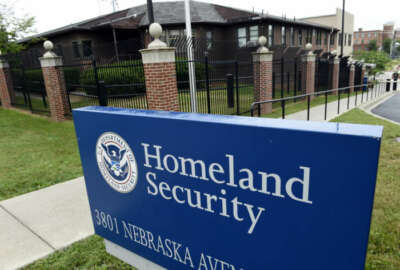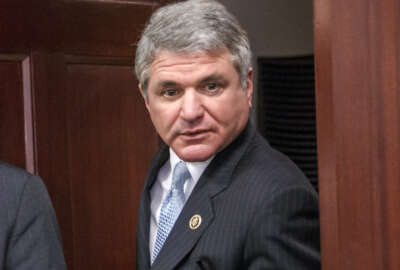
Kelly’s operational experience key to leading DHS under Trump, experts say
Gen. John Kelly, the former U.S Southern Command leader who President-elect Trump chose as his new secretary of the Homeland Security Department, will bring a lot...
With the pick of retired Marine Gen. John Kelly to be the next secretary of the Homeland Security Department, experts say the nominee brings much-needed operational experience and knowledge of a region critical to the incoming administration’s policy positions.
But DHS is not the Defense Department, and it may take time for Kelly to adapt to the challenges that come with managing a multi-component civilian agency.
President-elect Donald Trump’s pick for DHS breaks a four-time trend of appointing a lawyer to lead the agency. As a former leader of the U.S. Southern Command, Kelly has more operational experience and perhaps more knowledge of the southern border than his predecessors, said Marc Pearl, president and CEO of the Homeland Security and Defense Business Council.
“This is a person who brings, we believe, critical first-hand knowledge and experience of many of the challenges that are associated with things like counterterrorism and drugs and human trafficking, and that experience could be extremely valuable, not only for the border and immigration issues … but also for example, with our future relationship with Cuba,” he said.
His prior experience will also help him understand the mission of many of DHS’ 22 component agencies.
“He’s worked with the components, with Customs and Border Protection, with the Coast Guard,” Pearl said. “At SOUTHCOM, he was familiar with humanitarian relief efforts, so he’ll have a critical understanding of FEMA’s mission, and he’s also dealt with cyber issues.”
Kelly’s military experience will certainly have its benefits, but he’ll have to adapt to a civilian agency made up of large components like the Transportation Security Administration, Customs and Border Protection and Immigration and Customs Enforcement.
“It’s a double-edged sword,” Pearl said. “DHS is not DoD, and it is a military focus, where DHS is much more of a law enforcement focus.”
He’ll also have to learn how to develop collaboration in the homeland security enterprise, which depending on the situation, can often include the Health and Human Services Department, the Intelligence Community or the Justice Department.
“He’ll have to put together a team around him that understands that and recognizes that civilian agencies operate differently than the military organizations and that the different component parts all bring different inherent authorities,” Rafael Borras, a former DHS undersecretary for management and now a partner with A.T. Kearney.
Secretary Jeh Johnson said he knew Kelly during his tenure as general counsel for the Defense Department.
“John Kelly is a man of character and integrity,” Johnson said during a Dec. 15 speech at the Homeland Security and Defense Business Council annual dinner. “He will be well-received by the DHS career workforce. I have a lot of confidence in John Kelly, and I believe that you will too.”
Johnson has encouraged the next DHS secretary to continue the work he started on management reform at the department, particularly his efforts to bring more collaboration to the 22 component agencies under the Unity of Effort initiative.
In a way, Johnson’s initiative was a re-branded version of former Secretary Janet Napolitano’s OneDHS program. Borras, who led many of the efforts behind Napolitano’s program, hopes that Kelly will continue to promote a similar initiative and will work closely with component leaders.
“That’s where allowing Gen. Kelly to have a strong hand in the identification and selection of individuals who go into those positions, who feel connected to Gen. Kelly’s priorities and feel like they’re there to be a part of his leadership team as opposed to an independent operator of a single component, will send a strong signal to the rank and file that DHS will operate in a much more collaborative model,” Borras said.
Developing a relationship with the Office of Management and Budget may also be unfamiliar territory for Kelly.
“I used to joke with my friends at DoD that the role of OMB relative to the civilian agencies is different than the role of OMB and DoD,” Borras said. “Clearly, OMB has much more involvement in the affairs of the civilian agencies than I understand it to be in the DoD environment.”
The budget itself will also be a challenge, as Kelly will need to gather input from several other agencies, the White House and OMB to make a decision.
“DHS has a lot of money, but it’s a tenth the size of DoD, roughly top-line [about] $60 billion,” Borras said. “One issue is recognizing that addressing some of these management challenges get us back to that old guns and butter debate. Do I put an individual on the border? Or do I fix an IT widget?”
Ultimately, a good leader for DHS or any other large agency must be able to go back and forth between multiple responsibilities and a variety of topics.
“Something that I did at 8 o’clock in the morning has relevance to a conversation I’m having at 4 o’clock in the afternoon,” Borras said. “[You have to be] able to connect those dots and bridge the business of DHS.”
Copyright © 2025 Federal News Network. All rights reserved. This website is not intended for users located within the European Economic Area.
Nicole Ogrysko is a reporter for Federal News Network focusing on the federal workforce and federal pay and benefits.
Follow @nogryskoWFED
Related Stories





